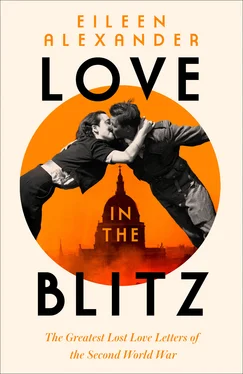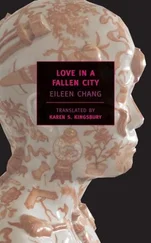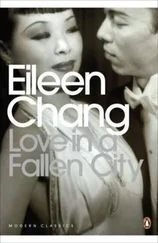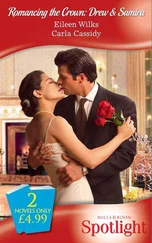The letters appear to have been first auctioned at Bridport Auction House in a bundle of miscellaneous papers shortly after Gershon’s death in 2003; presumably they had been part of his house clearance. The lot did not sell, and was taken away by an employee, who sorted the letters out from the rest of the papers and identified the writer, but found the task of transcription too difficult. A decade later, in January 2015, she put them back into the auction house as a separate lot:
Large quantity of correspondence (1939–1947) written by Eileen Ellenbogen (née Alexander) to Gershon Ellenbogen. Eileen Ellenbogen, a graduate of Girton College, was a noted teacher, writer and translator – especially of George Simenon’s Maigret books. In WWII Gershon Ellenbogen, who was in the RAF, worked for British Military Intelligence in Cairo.
The letters were bought for £250 by the dealer who subsequently began offering them on eBay until David’s intervention. Meanwhile David researched the family and friends of the couple, and Felicity tracked down Eileen’s grandchildren, who gave their assent for the letters to be published.
So these letters, surely some of the most beautiful and vivid love letters ever to be written during the Second World War, have survived through a series of chances, to be rescued from oblivion by David McGowan, their devoted transcriber and editor.
We plunge into the correspondence and follow the young writer’s experiences day by day with little knowledge of what lies ahead, as she lives through the war years. Slowly we learn to know her idiosyncrasies, her growing love, her relations with her rather ‘odd’ – as she describes them – family, her experience of the Blitz in London. We learn to trust her judgements on her circle of friends and acquaintances and we find them increasingly hilarious. Everything is seen through her eyes: even her beloved is only dimly reflected in her comments. We are amazed at her naivety and her ignorance of sex. We may admire her independent stance on Judaism and some of her progressive views on politics.
We begin, too, to appreciate that Eileen is involved in a new literary genre with a multiple purpose. The first is to enmesh her beloved in her life, to keep him engaged with herself and prevent him straying during their long separation – the sort of narrative letters that Ovid imagines Penelope writing to Ulysses. She wants to display all her talents, her knowledge, her first-class degree, her ability to find a quotation in Elizabethan literature for every eventuality. There is also much about her friends’ liaisons – perhaps in order to warn Gershon to keep faith with her.
The second is to create an intensely personal narrative, a type of Bildungsroman , so rich that it holds us as we follow the daily experience of a young woman setting out on life, with all its uncertainties, exploring her environment and learning from the mistakes of those around her.
The third is perhaps inadvertent; without knowing it, she is fashioning a feminist vision of war, a description of war as it is seen by women, not men – a time of absence and waiting, of hoping and doubting, of being caught between tradition and modernity, desire and faithfulness. That makes the narrative almost unique, the outside world impinges, disasters hit her, but she never acts, only reacts: and yet life goes on apparently normally. Elias Canetti’s famous description of contemporary London, Party in the Blitz , seems mean-spirited and randomly vicious beside Eileen’s instantaneous, daily, witty and loveable take on the undisturbed rhythms of Cambridge and London Jewish life in wartime Britain.
Did she ever think of publishing? She knew she had a talent for ‘the Art of letter-writing’, but publishing was never part of her plan. In September 1943 she wrote: ‘Pan has just come in to say: “Really, the care you take over your letters to Gershon – one would think that you were writing for future publication.” I looked at him Sternly, my dear love, & said: “Oh! no, I’m writing for a far more important reason than that.” But one day, he’ll learn, my love. Pan is the sort of person who will love a woman as I love you.’
Rather, her letters and her love for Gershon were her life: ‘I once thought that I had a genius for writing,’ she told him, ‘but I find instead I have a genius for love.’
As far as I’m concerned all my creative energies, all my critical & social faculties, all my moods and thoughts, and, above all, all the boundless sea of my love for you go into my letters to you … My letters are only a translation of my love, my darling. I can only give you my love itself when I’m with you, when I’m lying back in your arms – then, darling, I can give you my love with my voice & my eyes & my body. I am tired of being a translator, my darling. I want to be a creative genius again. If I have any creative genius, my dear love, it is in my love & not in my writing, which is insignificant & meaningless beside my love. What would the outside world know of my love for you, darling, if they were to read my letters? They would know what I know of the Odyssey when I read it in translation – but you are the only person, my darling, who has read the story of my love in the original and you are the only person who understands it fully & truly. That’s good, darling. It was a story which was written for you & only for you. I don’t want anyone else to understand it. It is not their story – it is only our story. I’m as arrogant & exclusive about our love as Ouspensky is about his Esoteric Knowledge.
This was ultimately the point: ‘I wonder what anyone would think if they suddenly came across my letters to you & started reading them in chronological order? I think they’d say “This girl never lived till she loved” – and it would be true, darling. Until I loved you, I was in the process of undergoing intellectual and emotional dry-rot. If I’d never known you – people, in later years, would have looked at me as though they’d taken a mouthful of vinegar – with the corners of their mouths screwed up, & said “Wormwood! Wormwood!” – but now they’ll say “While she lived she was a true lover & therefore she had a good end.”’
As she wrote these letters Eileen was surely thinking of the portrayal of courtly love in her favourite book by C. S. Lewis, The Allegory of Love , published in 1936, which she described as ‘the finest piece of Medieval literary criticism of our time & perhaps of all time’. She seems to see herself half ‘in the precarious dream-world of medieval love poetry’, as the faithful damsel of troubadour tradition in her chastity belt, creating a romance as she writes to her beloved lord away on the Crusades about the strange deeds at home in their feudal castle. She moves between ‘the allegory of the Body and the Heart’. And she follows C. S. Lewis in believing in the continuity of courtly love into the English literary tradition of Shakespeare, Thomas Wyatt and John Donne. She is a supreme writer of modern literary prose, schooled by her love of English literature from Malory to Elizabethan and modern literature, yet with all the wickedness of a Stella Gibbons in her delight in ‘mollocking’. Compared to these, Eileen seems scarcely aware of Jewish antecedents, such as the Song of Songs or the books of Ruth and Esther, let alone the Jewish and Arabic love poetry of medieval Spain, still to be discovered. Yet she has written a masterpiece worthy to stand with these earlier writings in the Jewish tradition, alongside Giorgio Bassani’s The Garden of the Finzi-Continis (1962); and perhaps her insistence on the virtues of chastity and faithfulness, so at odds with her contemporaries, owes much to her Jewish upbringing.
The experience of love is both unique and universal, but it changes almost imperceptibly in each generation. Too often it is reflected in recollection, when, for whatever reason it is lost, its intensity dispersed or transformed by memory, as in Proust or the late poems of Thomas Hardy. There are many accounts of love from the two world wars, beginning with Vera Brittain’s Testament of Youth (1933) and Helen Thomas’s memoirs (1926 and 1931). Diana Athill – Eileen’s exact contemporary, who graduated from Oxford in the same year – may have experienced some of the same emotional highs and lows as Eileen as she corresponded with her fiancé, also in Egypt, but their relationship failed: he betrayed her ( Instead of a Letter , 1963) and the letters themselves are lost. One of the nearest accounts in both time and place is Laurence Whistler’s numinous The Initials in the Heart (1964) about his love for the actress Jill Furse in the early years of the war, her death and his subsequent grieving for the rest of his life. But that too is about loss, and, like Athill’s account, is written twenty years after the event in an attempt to assuage his grief.
Читать дальше












